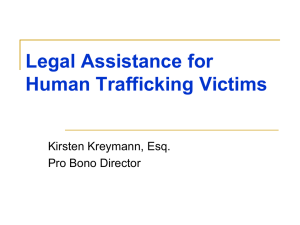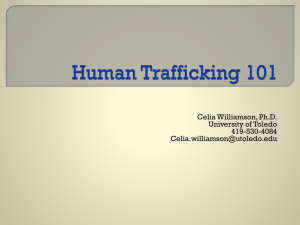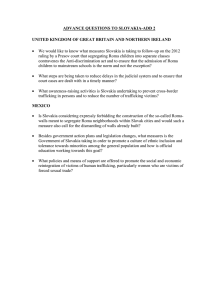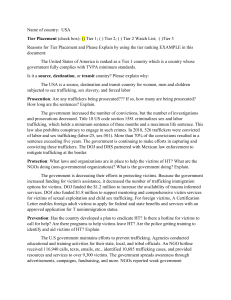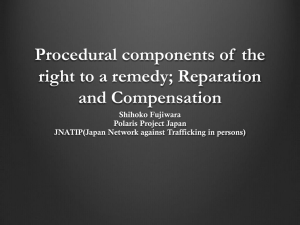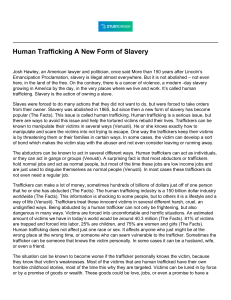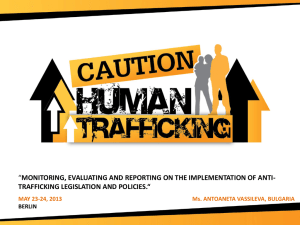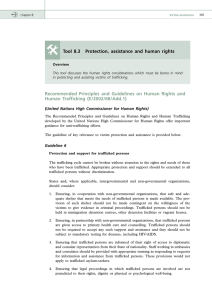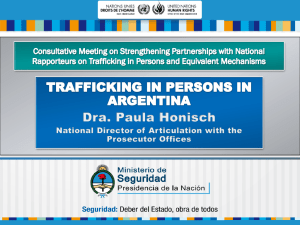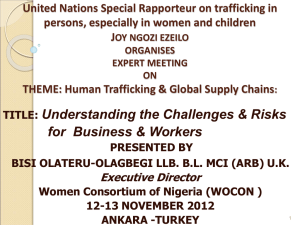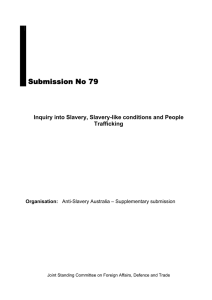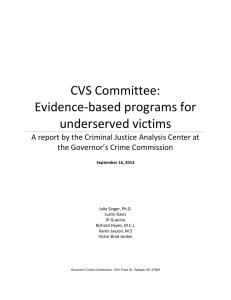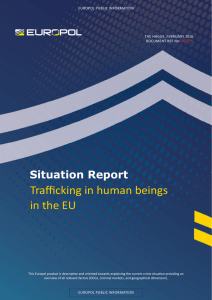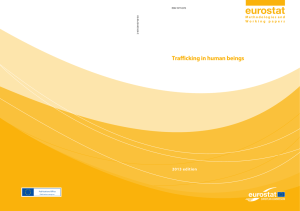on 21 November 2013, at the Hilton Hotel, Abuja, Nigeria
advertisement
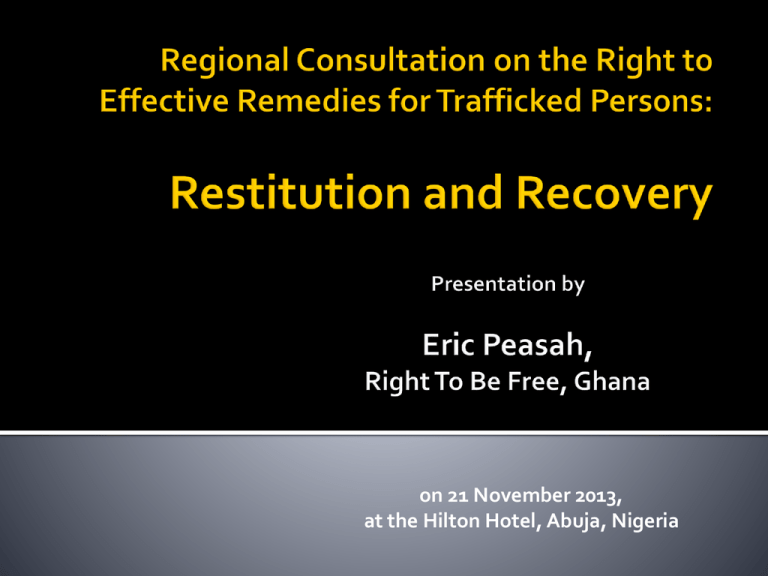
on 21 November 2013, at the Hilton Hotel, Abuja, Nigeria Some National Experience Some Good Practices from the National Experience Obstacles or Challenges in Practice Some concerns to reflect on about the Draft Recommendations Most countries in the sub regions have laws, or legislations to deal with traffickers and to support victims; In Ghana we have adopted the 5Rs approach Research (Intelligence, surveillance, etc which helps in identifications) Rescue Rehabilitation (provide psychosocial, medical screening and treatment, funding, shelter, counselling, ) Reunification or Return ( family tracing where necessary, Home assessments, consular support, at times air/bus tickets, at times police escort where necessary Reintegration: (some form of empowerment, like vocational training, helping deal with stigma, adjusting into their communities of origins, The rationale behind rehabilitation is to enable the children rescued to reach full recovery and complete the healing process in order to give the child/victims an opportunity to have a promising future - Some NGOs in Ghana run Shelter that the government and law enforcement used. But not enough Others Sponsors the Dept. of Social Welfare to help in the rehabilitation of the children they rescued They provide Psychosocial support, Counseling Medical Screening and Treatment Needs Assessment etc Help Victim resettle in Community of origin School/Vocational Placement where necessary Provision of support to parents or guardians where victims are children Micro credit and Micro grants to victims Monitoring some form of empowerment, like vocational training, helping deal with stigma, adjusting into their communities of origins, Educational Campaigns Empowerment of Vulnerable parents in these community of Origins or the source communities Government working together with NGOs Institutionalization of anti-trafficking curricula in training centers, i.e. police and immigration academies, Development of Anti Human Trafficking Fund Collaboration with INTERPOL Using the 5Rs approach which leads to specialized care by actors School feeding Program (Helps in Internal Trafficking) Free and Compulsory Basic Education (Helps in Internal Trafficking) Lack of government Commitment or Political Will (other economic pressing needs, these things doesn’t affect elections results) Lack of Funding from Governments No structures and systems for effective implementations (shelters, bureaucracies, etc) Most of the support are donor driven (INGO and InterGovernmental and NGO) when their funding stopped victims suffers) High cost of victim care 7. States shall: (a) Place the best interests of trafficked persons at the centre in providing measures of restitution; Some of the victims have Stockholm Syndrome and are on the side of the traffickers. What happens? (b) Provide trafficked persons with temporary or permanent residence status as a form of remedy where a safe return to the country of origin cannot be guaranteed, may place them at risk of persecution or further human rights violations, or is otherwise not in their best interests; If victims still want to go what happens? (c) Effectively address the root causes of trafficking in order to ensure that trafficked persons are not returned to the pre-existing situation which places them at risk of being retrafficked or further human rights violations. Most governments are aware of the root causes. Studies and researches have come out with these causes but yet are not addressing it, what should be the way forward? 8. States shall: (a) Provide a non-conditional reflection and recovery period, during which trafficked persons are provided with measures necessary for the physical, psychological and social recovery, including, but are not limited to: appropriate housing, counselling and information about their situations and legal rights; medical, psychological and material assistance; and employment, educational and training opportunities; For how long and if the State Parties don’t have the means what happens? Traffickers properties and funds when confiscated should be used for remedies of victims Budget allocation for effective remedies View victim protection as a State Policy Strong witness protection systems For your Attention

